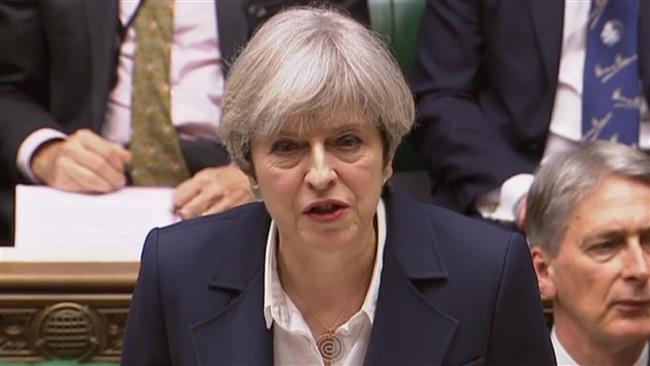UK Prime Minister Theresa May has triggered the formal, two-year process of withdrawing Britain from the European Union (EU), likely to be the most complex London has held since World War Two.
Launching the process of Britain’s exit from the EU, popularly known as Brexit, was announced by the prime minister on Wednesday at the UK Parliament, after more than 40 years of membership in the bloc.
On behalf of May, British Ambassador to the EU Tim Barrow hand-delivered a letter to European Council President Donald Tusk in Brussels to officially notify the EU of Britain's decision to withdraw from the bloc.
The six page letter invoked Article 50 of the EU Treaty, the mechanism for starting Britain’s divorce process.
In her speech to Parliament, which was planned to coincide with the letter's delivery, May urged the country to come together as it embarks on a "momentous journey."
"The Article 50 process is now under way and in accordance with the wishes of the British people, the United Kingdom is leaving the European Union," she said. "This is a historic moment from which there can be no turning back."
Brussels is expected to deliver its first response to London on Friday, followed by a summit of EU leaders on April 29 to adopt their own guidelines, possibly taking weeks before formal talks start.

The United Kingdom held a referendum last June in which Britons voted by a 52-48 percent margin to leave the EU, the first member state ever to do so.
However, there is a chance that the Brexit negotiations will break down and the UK will be forced to exit the EU without any deal in place.
The EU is determined to preserve its own unity and has said that any Brexit agreement must not encourage other member states to leave the bloc.
Although Britain as whole voted to leave the EU, Scotland and Northern Ireland voted to stay in the bloc.
The Brexit referendum has prompted nationalists in Scotland and Northern Ireland to call for a referendum on independence from the United Kingdom.
There is broad consensus among economists that Brexit will have a prolonged effect of the British economy and will ultimately diminish output, jobs and wealth to some degree.
Many business leaders are also concerned about May's decision to leave the EU single market, a free trade area of 500 million people, fearing its impact on jobs and economic growth.
LINK: https://www.ansarpress.com/english/5869
TAGS:































 online news tv
online news tv




